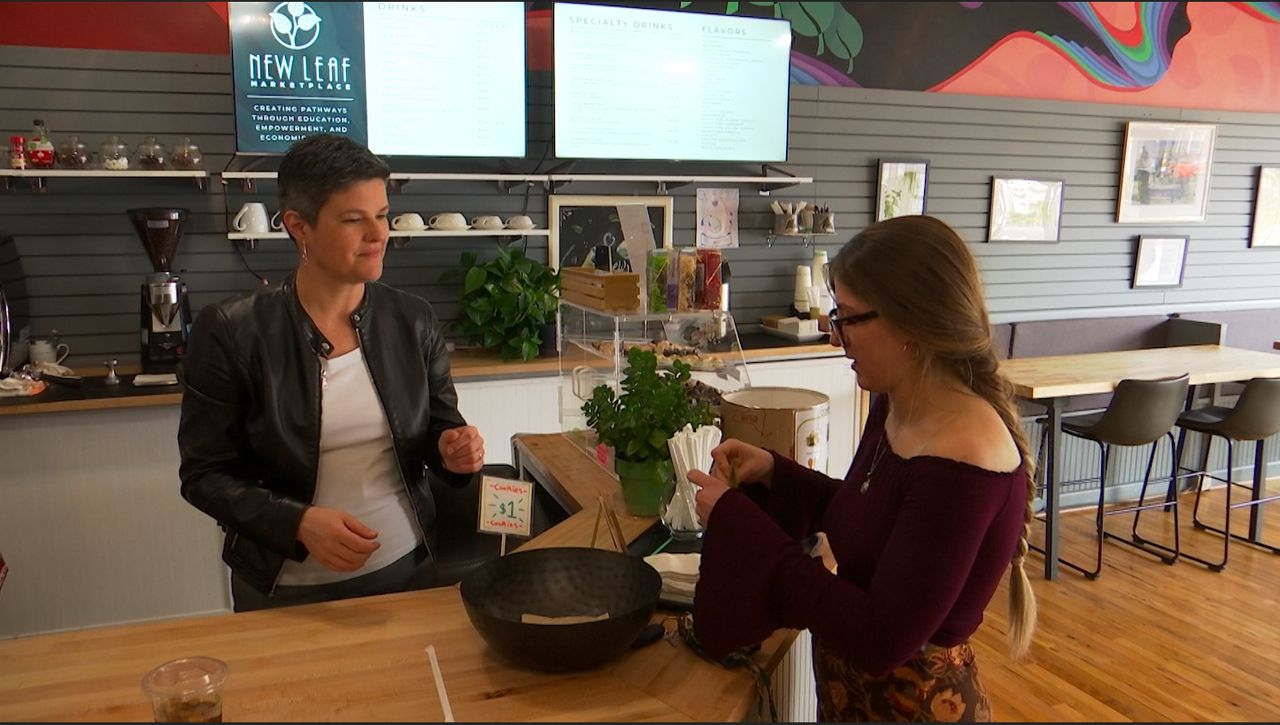NELSONVILLE, Ohio – Ohio’s new Appalachian Community Grant Program, which plans to inject $500 million into the state’s 32 Appalachian counties announced its first four recipients in March. The largest grant, $25,793,806, is going to the Survivor Advocacy Outreach Program to help expand their mental health and advocacy services, especially through the agency’s recovery villages.
The first village will graduate its first cohort of participants in the next few months, and as the program hopes to set them up for success, Jen Seifert, the executive director said this grant will set the stage for the program to grow in tandem with its communities and provide better opportunities for participants once they leave.
For nearly a decade, the Survivor Advocacy Outreach Program has been working to help survivors of sexual and domestic violence and other forms of trauma across Southeastern Ohio, though New Leaf Justice Enterprises is a relatively new program.
The first Recovery Village started in Nelsonville in the fall of 2021 as Jen Seifert worked with local partners to find ways to incorporate more community connection and cohesion into the recovery process to help set survivors up to “turn over a new leaf” and re-establish themselves as a part of a local support network.
“We just started talking and dreaming and this is where the idea was born,” Seifert said.

The idea was to create a “village” within a community like Nelsonville. The New Leaf Marketplace serves as the public-facing anchor. A combination coffee shop and marketplace for local artists, the store served as a place for participants to work and earn a wage while they develop the hard and soft skills to land them employment opportunities after the program.
Charlie Chadwick, the workforce development program manager, said he works directly with the participants to help them rediscover what their values and ambition might be, something that can be hard to determine amid trauma. Then from there, he helps direct them toward employment opportunities.
“Because when folks are able to identify what their values are then they better identify that within organizations and companies that they’re interested in working for,” he said.
The program also provides counseling, child care, and case management services all within a 10-minute walk of the independent housing units the program provides.
“When people are trying to mobilize the things that they need to live a healthy and stable life, having them within walking distance is really critical because many of our folks can’t afford a vehicle,” Seifert said. “It matters, even just for basic things like buying groceries, clothes and shoes.”
The model has worked so well in Nelsonville, Seifert said SAOP has already worked to get versions started in Athens and Glouster, but as Nelsonville’s first New Leaf cohort prepares to move on, case managers like René Redd see immediate needs for more support. She said many of their participants have expressed concern about housing and transportation barriers that might prevent them from staying in the communities where they’ve built up this network of support.
“There just aren’t a lot of options within Nelsonville which is where a lot of people want to stay because this is where they were born, where they were raised and where they want to continue to grow their roots,” she said.
Much of the nearly $26 million will go toward affordable housing solutions, including the construction of 3D-printed affordable housing and the renovation of downtown buildings.
Seifert sees community preservation as a key part of the New Leaf mission.
“Not just help families set a trajectory to long-term stability because they’re survivors, but especially in light of the ways that the necessary response to the pandemic disrupted things further for folks in our program,” she said.
In that way, Seifert hopes these recovery villages can help the survivors, their neighbors and the entire region thrive.
According to a release from the governor’s office, New Leaf was one of the chosen projects, in part because it was “shovel ready” and can begin construction or implementation in the next 90 days.



